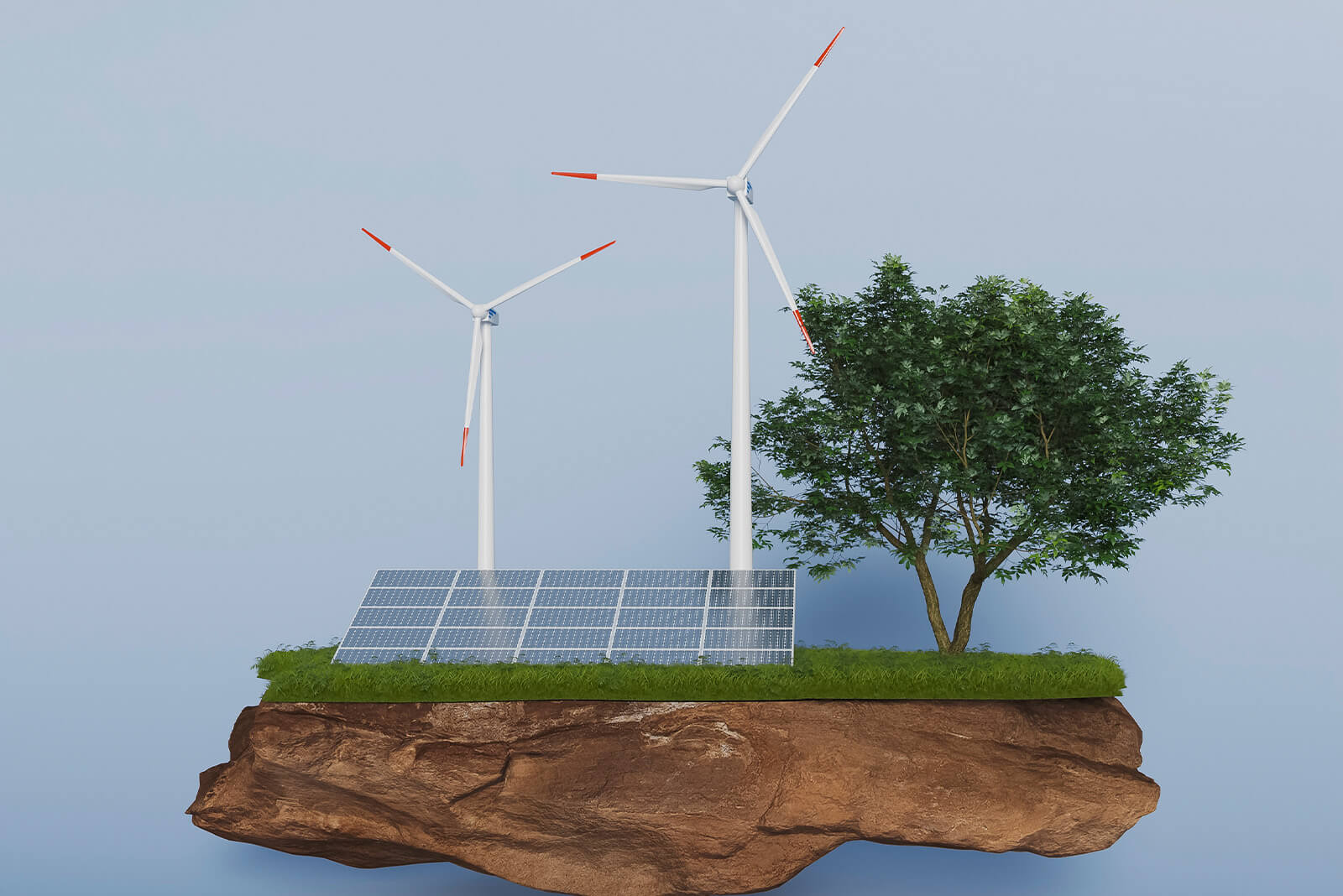By: Nzan Ogbe, Group Chief Executive Officer, Levene Energy Holdings
We all have several needs but surely not enough money and resources to meet them all. How do you adequately satisfy the need for food, clothing and shelter for one and ensure that the needs of another, who will be born 40 years after, will also be adequately met without one affecting the other? Sustainable development hopes to get this done.
The phrase ‘Sustainable Development’ became an anthem after the United Nations General Assembly in 2015 adopted the Sustainable Development Goals to achieve a better world. Beyond the anthem, sustainable development seeks to ensure a world where human needs are met without disrupting the stability and integrity of our planet.
The UN has listed 17 goals as steps to how it can attain sustainable development. They include zero hunger, no poverty, good health and well-being, quality education, clean water and sanitation, affordable and clean energy, industry, innovation and infrastructure, sustainable cities and communities, responsible production and consumption, and climate action.
However, energy lies at the centre of the climate equation and the quest to build a sustainable world. In fact, the United Nations describes it as the key to solving some of the challenges being experienced.
From heat production to keep us warm to electricity generation to power homes, industries and fuel for vehicles, trains and aeroplanes, energy plays a vital role in human existence. Thus, it cannot be ignored in the quest to build a sustainable world.
Fossil fuels, such as oil & gas and coal, have been identified as the largest contributors to the climate change problem. Data from the UN shows that fossil fuels are responsible for an estimated 90% of all carbon dioxide emissions and about 75% of greenhouse gas emissions.
The effects of carbon dioxide and other greenhouse gases on the environment can be likened to that of a blanket. It traps heat from the sun and reduces the earth’s ability to cool itself by radiating this heat back into space. This has led to a phenomenon called climate change, where the earth is hotter, and there is increased drought and more severe storms – to mention a few.
To avoid the worst impact of climate change, the UN has set a goal to reduce emissions by almost half in 2030 and achieve zero emissions by 2050. This is the basis for the climate change conversation.
Seeing how crucial the need for energy is for human survival, alternative energy sources are being explored on a daily basis. This research has resulted in electric cars and electricity generation using heat from the sun (solar power), water and wind. The possibility of electricity generation from waste is also being explored.
Several arguments have been made in favour of renewable energy; its sources are all around us, it is cheaper, it creates jobs, it is healthier, and all these mean that it makes economic sense.
To ensure everyone is on the same page, countries have been encouraged to develop an energy mix that does not lean heavily on fossil fuels and cut spending/funding for projects powered by fossil fuels. Large corporations and companies have been encouraged to reduce their carbon footprint and offset emissions by donating to green energy projects and planting trees. Companies in the oil & gas sector (including Levene Energy) are also making moves to shift their focus and spending from crude oil to renewable energy.
However, critics have described the green energy campaign as unfair to developing countries like Nigeria. Their argument is that if coal powered the development and industrialisation of European countries, the United States of America and even the United Kingdom, why should oil-rich countries not enjoy using their resources for their development?
Their argument seems valid when the contribution of African countries to greenhouse gas emissions (estimated to be about 3.8%) is considered, yet these countries also bear the brunt of the effects of climate change.
The initial refusal of China and the European Union to fund a ‘loss-and-damage’ fund for the world’s most vulnerable countries, which also have to contend with the effects of climate change, also gives their stance some fuel.
This incident was one of the highlights of the 27th Conference of Parties – the United Nations climate change conference (COP27) held in Egypt. The EU had said that it would only partake in the fund if China were also a donor, insisting that the Asian powerhouse has developed significantly since it was categorised as a developing nation in the 1990s and has now become one of the biggest greenhouse gas emitters.
Thankfully, the historical ‘loss-and-damage’ fund was set up. The fund will have a broader funding arrangement outside the UN climate change process from other sources such as insurance, donor contribution, oil & gas tax, and debt relief.
Frans Timmermans, the Vice President of the European Commission, has also said the fund should cover middle-income countries like Pakistan.
The road to sustainable development is a long one for the countries of the world. Energy – whether green or otherwise – will play a crucial role in determining what will be left of our planet in another 100 years.
Will it be cool and green with plants flourishing? Or will it be one hot, chaotic planet with oil spills and other industrial waste? Only time will tell.





